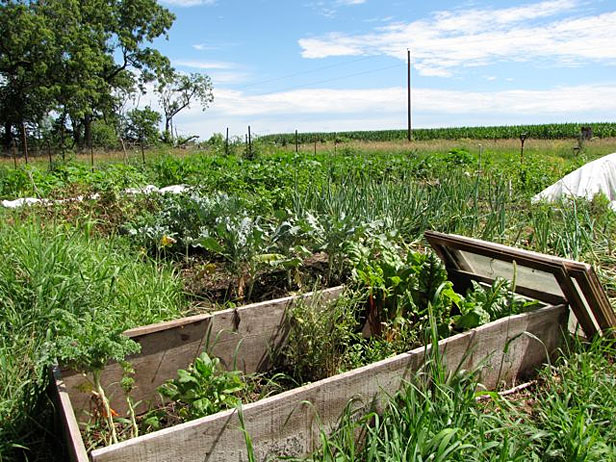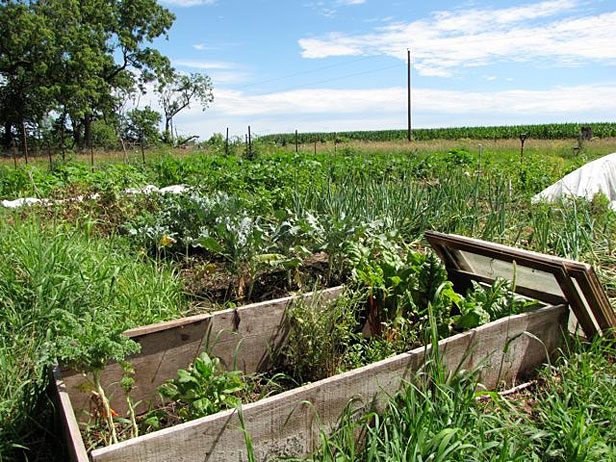 How does my garden grow? Quite well, but with lots of weeds to pull!(Steph Larsen)
How does my garden grow? Quite well, but with lots of weeds to pull!(Steph Larsen)
Living in a place where I can grow things makes me want to burst out in song. And I’m not alone — there’s a long and storied tradition in many cultures of making music while we work.
Long before I wanted to grow things, I played music. By the time I was six, my mother traded my piano banging for actual piano lessons, and for the next 13 years playing music and singing was a central focus of my life. My head is so full of music most days that hardly a moment goes by when there isn’t some melody floating through my head.
Sometimes it feels like a curse, like the week I couldn’t stop singing Lady Gaga’s “Bad Romance.” Or the times that a few bars of a tune get stuck in my head and I can’t remember how the rest of the song goes. But mostly the music in my head makes me laugh and keeps me company as I’m picking beans, moving the sheep, or sowing beets.
Repetitive tasks have always lent themselves to music — they pass the time, keep everyone on a steady work pace, and have at times conveyed secret messages. There are many African-American work songs with agricultural themes dating from slavery times. This video of Leadbelly’s rendition of one, “Pick a Bale of Cotton,” illustrates the simple chorus and increasing tempo characteristic of most of them.
Work songs are evident in contemporary American culture too. Sam Cooke’s song “Chain Gang,” for example, not only tells a story of prison labor, but it’s a cadence song you can sing in a field. The military uses chants to keep soldiers marching in step. And who can forget the scenes in Snow White when she sings “Whistle While You Work” or in O Brother Where Art Thou? when they sing “Po’ Lazarus“?
Perhaps the best known of the work-song styles is yodeling and its close relative, the “yootz.” Yodeling is closely associated with Alpine culture, but Persians, Georgians, and even African Pygmy tribes all have forms of yodeling. Roughly translated to mean “erupt into a joyful noise,” a yootz is used to let livestock know you’re around. I can definitely see the benefit in that. Stumbling around as I do in the morning, the sheep and chickens would spook if they didn’t know it was me making all that racket. Singing differentiates me from a coyote.
I first heard about “yootzing” from Bennett Konesni, a man for whom work songs are a passion. He’s been all over the world learning about work songs and teaching people how other cultures use music “to make difficult work more enjoyable, to shape and connect with their environment, and to express the joy and sorrow of everyday life.”
In fact, I can’t stop laughing along with this video of Bennett leading a class of graduates in a yootz:
Music lets us connect to each other with laughter and allows us to live in the moment.
In my childhood, I remember hearing that singing to plants makes them grow better. The theory, I was told, was that the carbon dioxide that we exhale benefited the plant. A 2009 study by the Royal Horticultural Society, as reported in the U.K. Telegraph, found that tomato plants grew faster if a woman’s voice played in the background.
In that case, I guess I’ll keep singing to my garden and see what happens.




